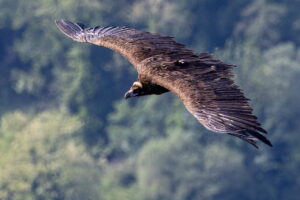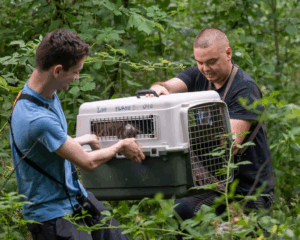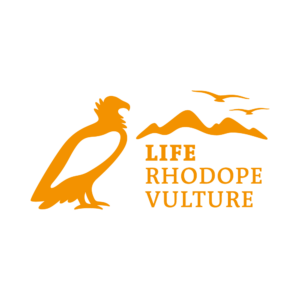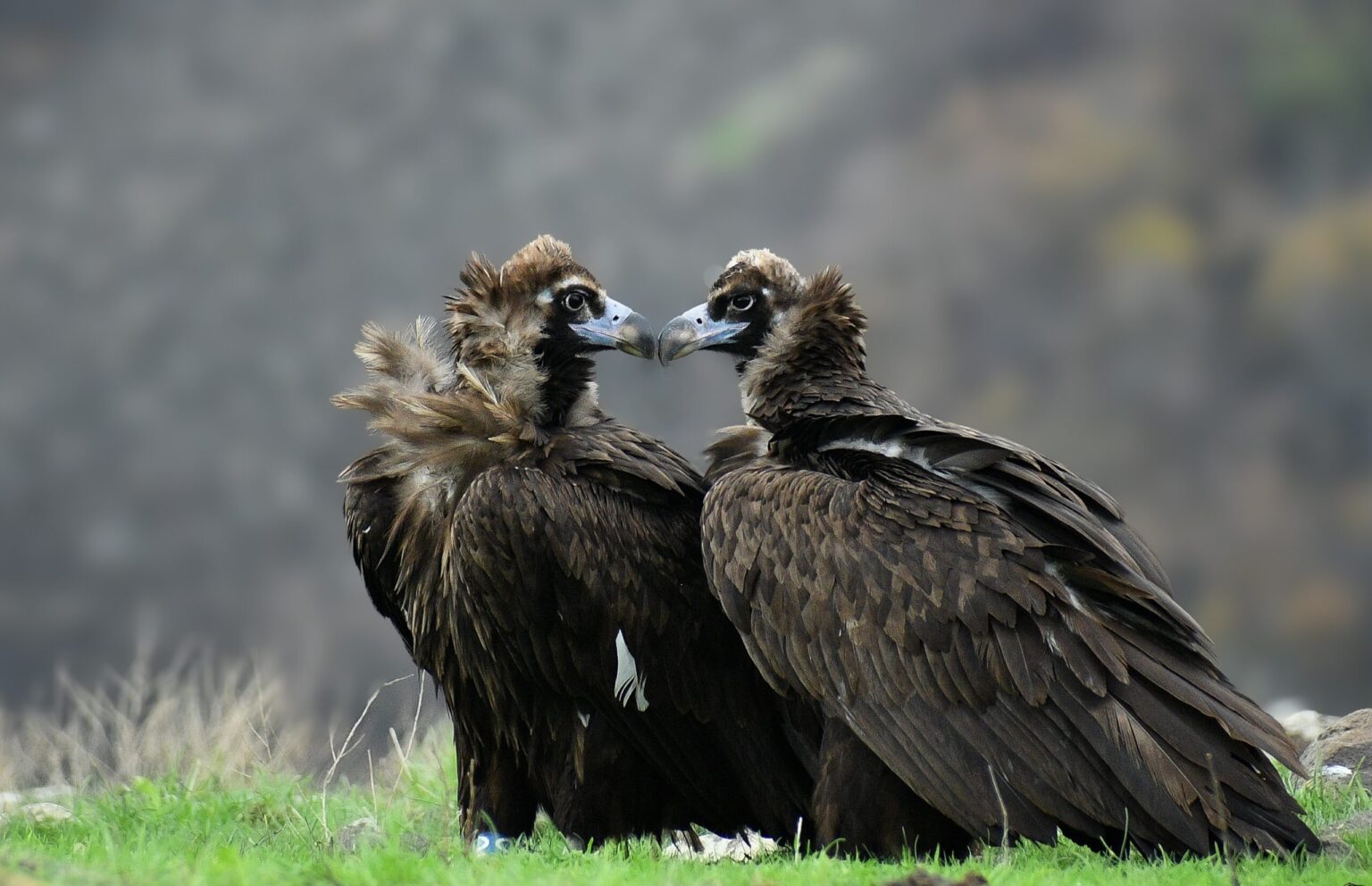Vultures know no borders, and conservation efforts should follow the same route. A male Cinereous Vultures, released in Bulgaria in May by the LIFE Rhodope Vulture programme, was recently rescued in Serbia, thanks to an international action.

The unfortunate protagonist of this misadventure is an adult Cinereous Vulture (Aegypius monachus) male. His GPS transmitter signalled an unusual lack of movement while he was in the area of Vranjska Banja, Serbia. The Bulgarian monitoring team immediately alerted the Serbian Society for the Protection and Study of Birds, that successful rescued the bird.
A fighter from the very beginning

This bird story started in Spain, where he was rescued by the GERFA rescue centre. Last May, he was released in Bulgaria within the LIFE Rhodope Vulture reintroduction programme, led by the Bulgarian Society for the Protection of Birds (BSPB) and the Rewilding Rhodopes Foundation, with partners from Bulgaria, Greece, and Spain.
Even though he has only one eye, he successfully adapted to the life in the wild. He moved from Bulgaria to Serbia, finding food and shelter for over a month. Only at the beginning of July, his GPS transmitter showed a concerning lack of movements, alarming the monitoring team.
A fortunate rescue

La Bulgarian Society for the Protection of Birds (BSPB) immediately alerted the Serbian colleagues. The Serbian Society for the Protection and Study of Birds, and a group of volunteers, swiftly answered the call, launching an intensive search. The terrain was difficult and overgrown, but they persevered.
They found the bird hidden in dense vegetation and in poor conditions. Thanks to the coordination with the Institute for Nature Conservation of Serbia, the team transported the Cinereous Vulture to the ZooPlanet Niš rescue centre to administer the first care. Later, the bird was moved to Belgrade for further treatment.
Teamwork makes the dream work
Once again, this successful rescue highlights the crucial role that regional and international collaboration play in conservation. Each bird reintroduced by the LIFE Rhodope Vulture and its partners, is constantly monitored via GPS transmitters to ensure their safety at all times. This effort becomes vital when birds need rescue, as it happened to this adult male. An international network is as vital as monitoring. Released birds take time to develop a bond with their new territory, and sometimes they explore far away before coming back. An established network can act swiftly in case of emergency and take care of injured and sick birds. We thank the LIFE Rhodope Vulture team and the Serbian Society for the Protection and Study of Birds (BirdLife Serbia) for their prompt action, and wish this unlucky Cinereous Vulture a quick recovery.
LIFE Rhodope Vulture

Co-funded by the Programa LIFE of the European Union and the Rewilding Europe, The LIFE Rhodope Vulture project is dedicated to the recovery of the Cinereous Vultures population in the Rhodope mountains, between Bulgaria and Greece. The project aims to increase food availability for the species and address human wildlife conflicts. It will reintroduce birds from Spain to establish a new colony in Bulgaria and conserve the Greek colony in Dadia-Lefkimi-Soufli National Park. Lastly, the project aims to foster cooperation among local businesses, conservation initiatives, and stakeholders, and raise awareness about the ecological benefits of Cinereous Vultures. The project duration is 5 years, from June 2024 to May 2029. The total budget is €4,160,118 Euro. It is coordinated by Bulgarian Society for the Protection of Birds (BSPB) with the participation of Rewilding Rhodopes Foundation. It also benefits from international collaboration, including the Vulture Conservation Foundation.




